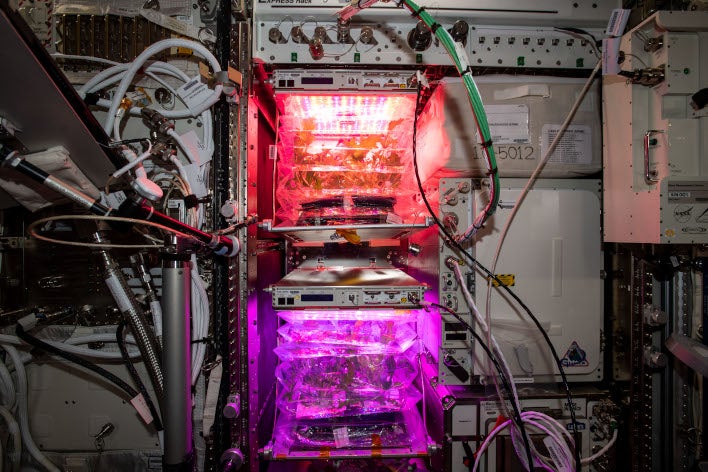Space tomatoes head back to Earth
‘The ability to grow plants in space for fresh food and an improved crew living experience is important for future long-duration missions,’ Nasa says

Your support helps us to tell the story
From reproductive rights to climate change to Big Tech, The Independent is on the ground when the story is developing. Whether it's investigating the financials of Elon Musk's pro-Trump PAC or producing our latest documentary, 'The A Word', which shines a light on the American women fighting for reproductive rights, we know how important it is to parse out the facts from the messaging.
At such a critical moment in US history, we need reporters on the ground. Your donation allows us to keep sending journalists to speak to both sides of the story.
The Independent is trusted by Americans across the entire political spectrum. And unlike many other quality news outlets, we choose not to lock Americans out of our reporting and analysis with paywalls. We believe quality journalism should be available to everyone, paid for by those who can afford it.
Your support makes all the difference.Tomatoes grown in space will return to Earth this weekend as Nasa concludes a successful investigation into producing fresh food for astronauts.
The tomato harvest will depart the International Space Station on 15 April aboard a SpaceX Dragon cargo resupply spacecraft, which will be carrying nearly 2,000kg of supplies and scientific experiments.
The Veg-05 experiment saw astronauts aboard the ISS grow dwarf tomatoes in the orbiting lab’s miniature greenhouse, performing three harvests. The tomatoes were then frozen and examined for nutritional value.
“The ability to grow plants in space for fresh food and an improved crew living experience is important for future long-duration missions,” Nasa wrote in a blog post.
“The hardware could be adapted for use on Earth to provide fresh produce for those without access to gardens and as horticultural therapy for older people and people with disabilities.”
Other ISS experiments that will return to Earth on the weekend include crystals produced by Japanese space agency Jaxa, which could prove useful in developing more efficient solar cells, and an investigation by the Canadian Space Agency into the way arteries age in microgravity.
Growing food and plants in space has been the subject of numerous experiments by various space agencies since the 1980s, when a Soviet crew grew the first flower on the Salyut 7 space station.
Last year, Chinese astronauts, known as taikonauts, cultivated rice plants from seeds in space for the first ever time. It marked the first time that scientists had successfully produced the full life cycle of a rice plant in a microgravity environment, going from a seed to a mature plant capable of producing its own seeds.
Nasa will provide a free live stream on its website of the Dragon cargo craft undocking and departing the ISS at 10.45am EDT (3.45pm BST) on Saturday, 15 April.

Join our commenting forum
Join thought-provoking conversations, follow other Independent readers and see their replies
Comments